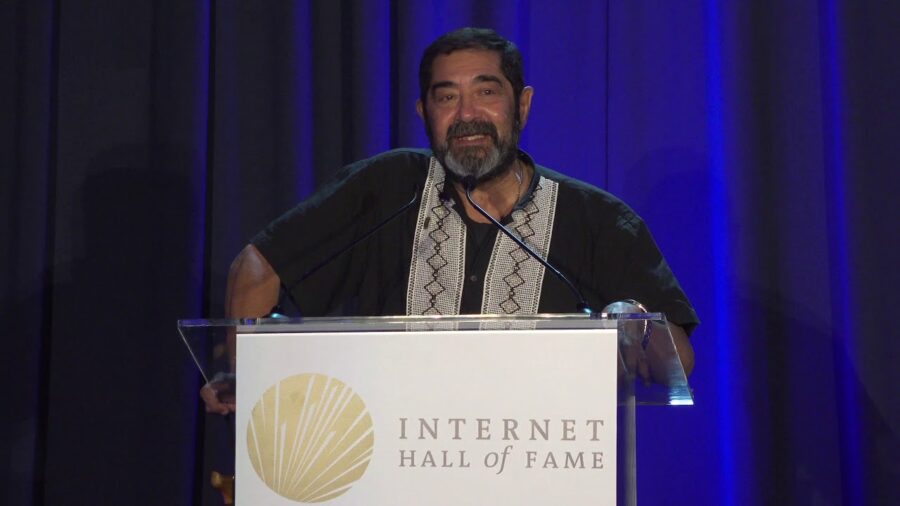José Soriano: It’s a great honor to be inducted in the Internet Hall of Fame. I don’t do it in my name alone. I do it for all the Peruvians who worked on this network we built in the 90s. We learned very well the teachings of Randy Bush. Sometimes when he taught us technology with love, and we saw poetic, hippie, unrepentant words. And we created with that a vision.
That vision was to make a network for all nations. In that time in Latin America, we had only academic networks for one side. On the other side we had only NGO networks. Sometimes, some government had one network. But we didn’t have the [?] of a national network. That means take everybody into the Internet. And the message we received in that time was the Internet is generosity, the Internet is interrelation between people, the Internet is negotiating with all the people to have links, to have nets, to have some servers somewhere.
Then we applied that in our country. We talked with doctors, librarians, universities, NGOs, governments, and we put everybody together. But we realized something. We had all this software in English. Then we decided we must do something about that. Then we translated everything we knew in Spanish to the people of the big cities in our country. But, we were a country of 40 million people at that time. And we had only 400 thousand computers. We didn’t have enough to make an Internet for everybody in the 90s.
Then we decided we’re going to do something where a lot of people could come and pay very little money to have access to the Internet. And we created something that was… We didn’t discover anything. We made what we call in Spanish cabinas públicas. Then we had a network, a UUCP network connected with Randy Bush in the United States talking two times a day sending information. We said, “But we need to do something more.”
Then we began to negotiate and we made something the technician said, “You cannot do it. You cannot make Internet with satellites.” We did it. Other technicians told us, “You cannot do Internet using radio.” We used radio to communicate with the Indians in the Amazonian forest. Other technicians said, “You cannot use cellular phones to communicate because it’s not going to work.” We did it also.
Then we had some technical achievements also that were very important for our region. Because we didn’t begin with the technology to teach people technology. We began with the problems of the people, and we used technology to solve these problems. One of these problems was a million people speak Quechua, which is an Indian language in our country. And together, all the people who work in this network began to see what we could do to also involve this community in the Internet. Then we involved some professors in Quechua and we began to translate content into Quechua and involved all the Indian communities in different regions of our country.
We had a lot of achievements. But it’s not only the work of one person, as it was said here. It’s the work of many people. The unknown people who are not here today but I feel I need to represent. That is the thousands of Peruvians who received help at the beginning from Randy Bush, from Steve Goldstein, from across the region. Ted Hope, who helped us to install the first servers in Peru. But after that, we asked to train our very young engineers to learn where the information was. For us it was not a technological problem. For us it was a knowledge problem. We needed that knowledge and we spread this knowledge even in the very very depths of the Amazonian forest.
I can ask… Lo voy a decir en Español. Podría decir que quiero estar agradecido con los miles de Peruanos y latinoamericanos que nos alludaron a construir tambien los organismos del gobierno de Internet, que juntos construimos en esos años 90 donde era muy difícil trabajar con las empresas que querian mantener sus monopolios. De todas maneras, esas luchas dieron como resultado el Internet que tenemos hoy. And we are very happy about that.
Further Reference
Internet Hall of Fame profile
